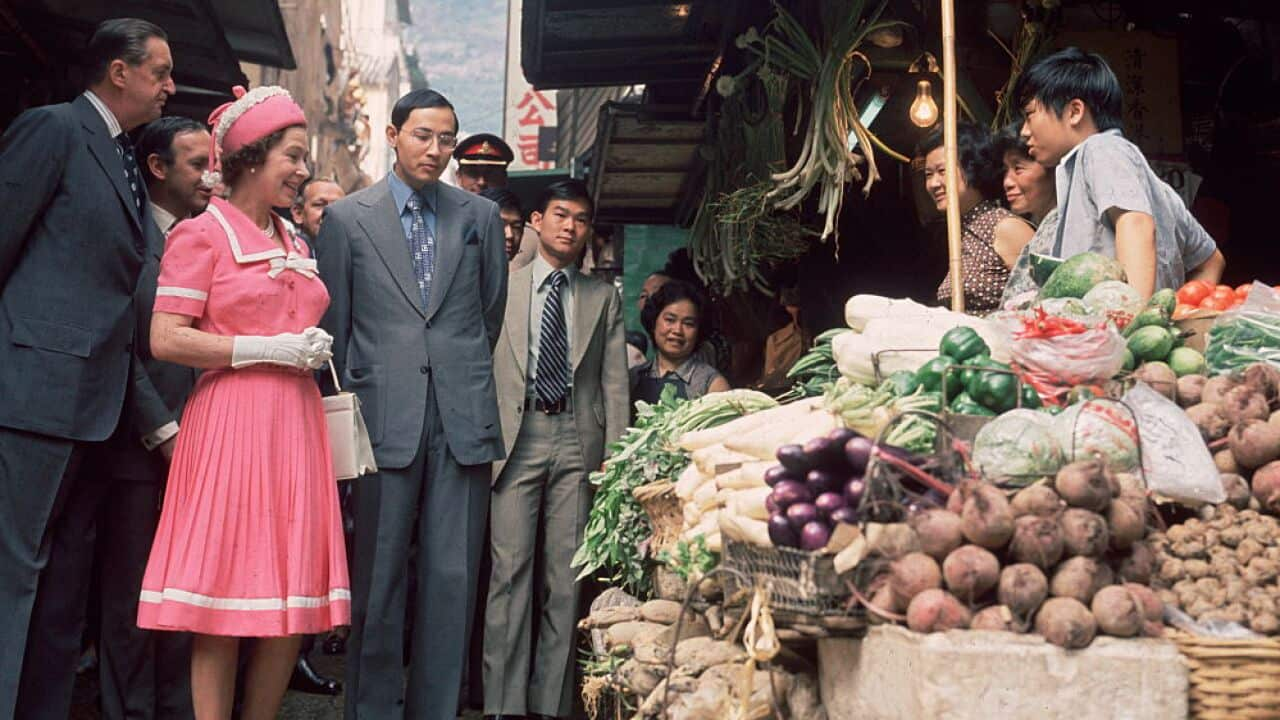The idea for the Commonwealth of Nations emerged in the early 20th Century as a response to the dwindling and dismantling of British imperial power. Different colonies began to gain some degree of autonomy or independence from the Empire, in different ways and in separate stages, shortly after the turn of the 20th Century.
“The British Empire was actually at its greatest extent and power right after World War I,” Australian National University’s History Professor Angela Woollacott explains.
In the early 1920s, the British Empire ruled something like a quarter of the world. But at the very same time that it was at its biggest extent, it started to shrink.Angela Woollacott, ANU Manning Clark Professor of History
While countries like South Africa severed its ties with the British Empire in the 1910s following the Boer War, and Ireland demanded Home Rule around the same time, colonies in Africa and the Caribbean remained under their colonial rule for longer.

The Prince of Wales, the Queen, and King Charles III during the Accession Council at St James's Palace, London, where King Charles III is formally proclaimed monarch. Charles automatically became King on the death of his mother. Photo credit: Jonathan Brady/PA Wire Credit: Jonathan Brady/PA
“The Empire and the Commonwealth overlapped … the Commonwealth started to emerge after World War I, but for decades it was called ‘The British Empire and Commonwealth’, which reflected the fact that some colonies were gaining autonomy and independence, while others were not,” Professor Woollacott said.
In 1947, India and Pakistan gained their independence, which was a critical blow to the power of the British Empire, and its political influence in the affairs of its former colonies.
Dr Cindy McCreery, Senior History Lecturer at the University of Sydney, said that given the construction of the Commonwealth was directly linked to the dismantling of the British Empire, its real political power has long been in question.
“Today, it comprises more than 50 Nations, most of which are republics. There are however some Commonwealth realms like Australia, which like Britain, has the British Monarch as Head of State,” Dr McCreery explained.
LISTEN TO

What is the role of the British Monarchy in Australia?
SBS English
08:33
Membership to the Commonwealth is voluntary, and member States can decide to join or leave.
“There have been some states that left the Commonwealth, others that have joined more recently, but on the whole, it's been a pretty stable organisation since the beginning of the Queen’s reign,” Dr McCreery said.
“Most members of the Commonwealth now are republics and they decided to have a President, in most cases as a Head of State, rather than the British Monarch, but that does not prevent them from remaining as members of the Commonwealth.”
How has the Commonwealth changed during Queen Elizabeth II’s reign?
ANU’s Prof Woollacott said a lot of the Commonwealth’s decline happened before Queen Elizabeth II came to the throne in 1952, as its power was linked to the idea of Empire.
However, in some cases, control of colonised territories was transferred to other powers. One example is Hong Kong, which had been a colony and dependent territory of the British Empire from 1841 but was handed over to China in 1997.
“When Queen Elizabeth II came to the throne in 1952, the British Commonwealth of Nations was a very significant and large organisation,” Professor Woollacott said.
“[The Commonwealth] has shrunk from what it was. I don’t think it has the same kind of power or status in the world now, even as some activities like sporting, like the Commonwealth Games and cultural and other events continue,” she said.
Barbados was the latest realm to drop its dependence to the Crown and become a republic in November 2021.
The death of Queen Elizabeth has renewed calls for Australia to follow suit. Djabwurrung Gunnai Gunditjmara woman and Greens Senator Lidia Thorpe says it's time for the country to establish a Treaty with First Nations peoples and become a republic.
I believe that more and more people don't want to be dictated by a colonial force from another country. We want to be our own country, to self-determine our own destiny.Lidia Thorpe, Greens Senator.
Dr Cindy McCreery said that as the Commonwealth evolved under Queen Elizabeth’s reign, its international standing has been called into question.
“It is really hard to identify what the power of the Commonwealth really is, indeed, that has been one of the criticisms against of the Commonwealth, that it hasn't actually done much in the past half-century”, she said.



